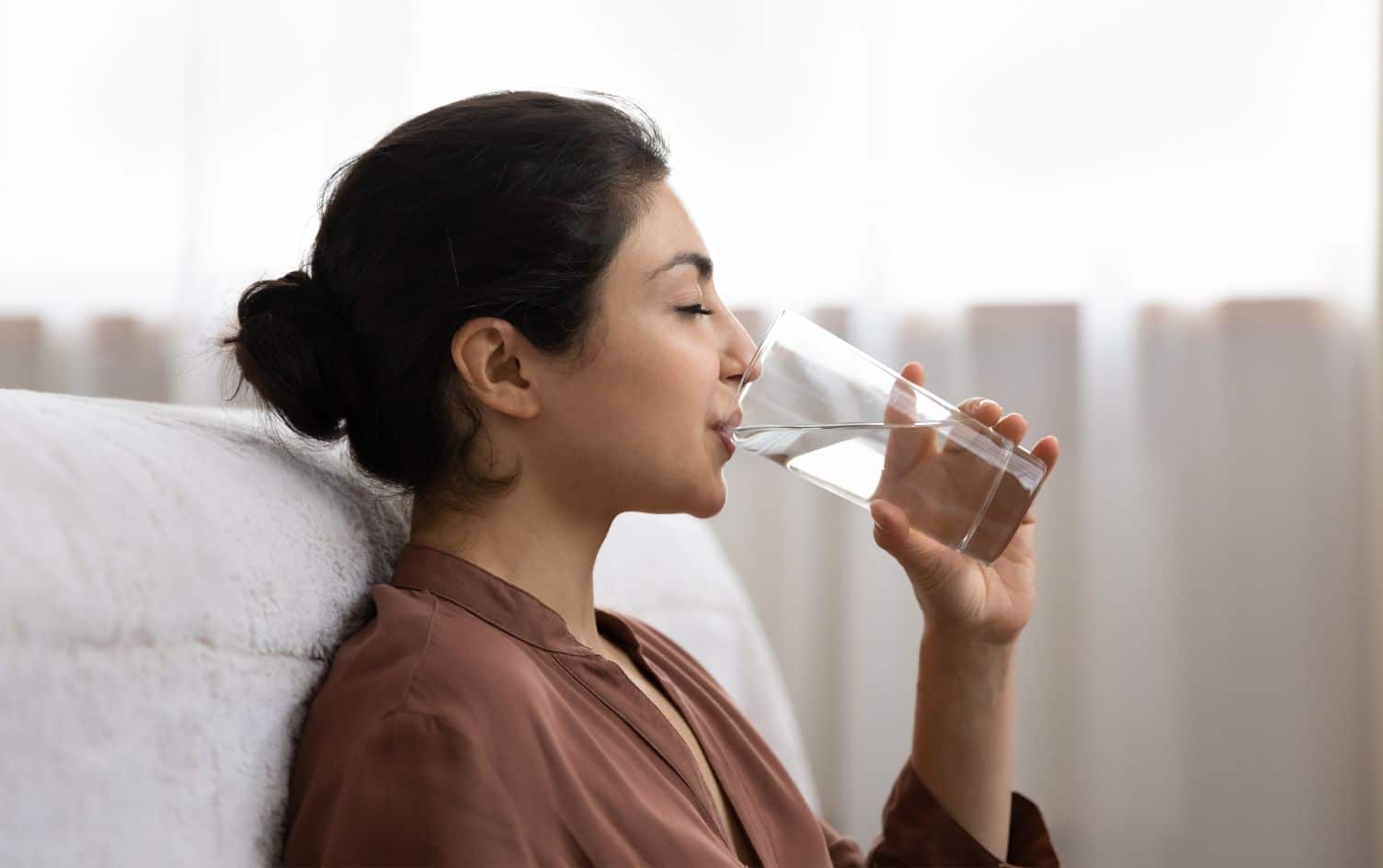Have you had enough water today? This question is often left out of the nutrition conversation but has an enormous impact on our health and day-to-day function. Our body is composed of roughly 60% water and every major system is influenced by fluid balance.
Water transports nutrients to organs and cells, carries away toxins, serves as a lubricant for joints and bones, helps us regulate our body temperature and even impacts brain function. Without water, we simply cannot survive. That said, you don’t have to be on the brink of death to feel the effects of dehydration. Even a 2% decrease in body weight due to fluid losses can impact physical and mental performance.
The Institute of Medicine recommends 3.7 liters/day for adult men and 2.7 liters/day for adult women; however, you may need more if you’re physically active, breastfeeding and/or during the warmer months. It’s also important to keep in mind that water losses vary from person to person, and some people naturally need more fluid than others. Yes, you can have too much water.
Roughly 80% of our hydration needs come from fluids like water, milk and tea. The remaining 20% comes from high-water foods such as fruit, veggies and yogurt. Some fluid and food choices are better than others for hydration. For example, alcoholic beverages are fluids that increase water loss by blocking anti-diuretic hormones.
- Water/sparkling water
- Tea
- Milk (especially for children)
- Low-sodium beef/chicken/vegetable broth
- Cucumber
- Cabbage
- Zucchini
- Celery
- Lettuce
- Tomatoes
- Radishes
- Bell peppers
- Asparagus
FLUID DEPLETERS
Alcohol, exercise, warm weather, fever, diarrhea/vomiting and some medications increase water losses and elevate your risk of dehydration. Coffee was previously thought to be a ‘fluid depleter,’ but recent research suggests this is not the case.
Water losses via sweat (and, to a lesser extent, breathing) increase during exercise, and the harder and longer you work, the more water you lose. Water, however, is not the only thing that escapes from us during exercise — electrolytes like sodium and potassium are lost, too.
Before a Workout
Hydrate frequently throughout the day. Cap off your fluid tank with 1/2–1 cup of water 15–20 minutes before exercise.
During a Workout
While you work out, consume 1/2 cup fluid for every 20 minutes of exercise.
After a Workout
Drink 2 cups of water for every pound of body weight lost.
Sports Drinks
Add a sports drink or electrolyte supplement during and after exercise if you’re a particularly heavy sweater or work out for more than 45 minutes.
Common signs of dehydration include:
- Thirst
- Brain fog, fatigue and irritability
- Constipation
- Dark yellow urine
- Dizziness
- Rapid or irregular heartbeat
- Dry mouth
- Sunken eyes and dry skin
- Reduced urine or sweat output
- Headache, joint pain and cramps
- Elevated body temperature
TIPS FOR STAYING HYDRATED
- Monitor your urine color: Lemonade or lighter generally means you’re hydrated.
- Keep a water bottle visible at home, work, in your car and anywhere else you spend a significant amount of time.
- Track your water intake with an app like MyFitnessPal.
- Add flavor (and nutrients): Add slices of lemon and lime, fruit and fresh herbs to water to keep things interesting.
- Get in the habit of pouring yourself a glass of water with every meal and snack.
- Invest in good water bottles: Many modern water bottles keep beverages cold (or hot) for up to 24 hours.
- Start your meal with a broth-based soup or salad. Soups and salads contain water-rich ingredients.
- Heed these 10 tips for better hydration.
Unlock an experience that’s like having a dietitian, trainer and coach — right at your fingertips. Go Premium for expert guidance and exclusive tools that will help you reach your personal health goals.




